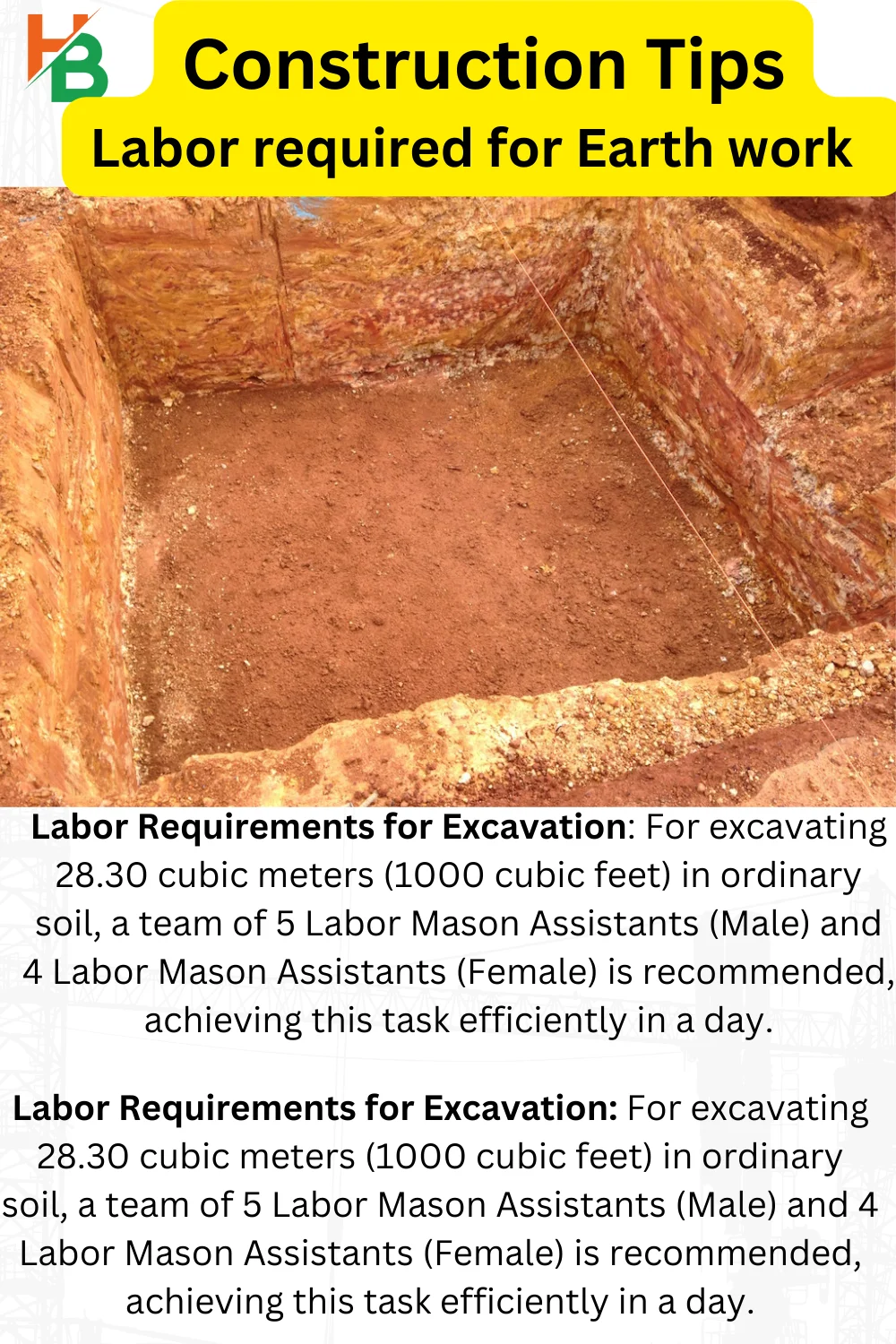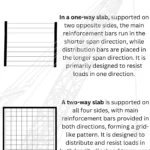What is Earth Work?
Table of Contents
ToggleEarthwork in construction refers to the process of manipulating the earth’s surface, involving excavation, grading, and backfilling to create a desired topography for building projects. It encompasses activities such as digging, moving, and compacting soil to prepare the ground for foundations, roads, embankments, and other structures. Earthwork plays a fundamental role in shaping the landscape and ensuring a stable foundation for various types of construction projects.
The efficient allocation of manpower is essential to ensure that these tasks are completed within the stipulated time and budget. In this article, we will discuss the specific manpower requirements for earthwork, focusing on excavation and refilling processes.
labor Required for Earth work excavation and refilling
Manpower Requirements for Excavation:
Excavation in Foundations and Trenches:
- Type of Soil: Ordinary soil
- Quantity: 28.30 cubic meters (1000 cubic feet)
- Distance of Disposal: Up to 30 meters (100 feet)
- Lift: 1.5 meters (5 feet)
- Manpower: 5 Labor Mason Assistants (Male) and 4 Labor Mason Assistants (Female)
- Daily Output: 28.30 cubic meters (1000 cubic feet)
Explanation: The excavation process involves digging into ordinary soil in foundations and trenches. A team comprising 5 Labor Mason Assistants (Male) and 4 Labor Mason Assistants (Female) is capable of excavating 28.30 cubic meters (1000 cubic feet) per day. This includes the necessary disposal of excavated material within a 30-meter distance and a lift of 1.5 meters.
Manpower Requirements for Refilling:
Refilling Excavated Earth in Foundations and Plinth:
- Layers: Consolidation in 15cm (6″) layers
- Quantity: 28.30 cubic meters (1000 cubic feet)
- Manpower: 3 Labor Mason Assistants (Male) and 2 Labor Mason Assistants (Female)
- Daily Output: 28.30 cubic meters (1000 cubic feet)
Explanation: The refilling process involves consolidating the excavated earth in foundations and plinth in layers of 15cm (6″). A team comprising 3 Labor Mason Assistants (Male) and 2 Labor Mason Assistants (Female) can efficiently complete the refilling of 28.30 cubic meters (1000 cubic feet) per day
Earthwork in construction involves activities such as excavation, grading, and backfilling to shape the ground for building projects. It’s crucial for creating a stable foundation and desired topography.
Efficient manpower allocation ensures timely completion and cost-effectiveness in construction projects. It optimizes resources for tasks like excavation and refilling.
For excavation in ordinary soil, a team of 5 Labor Mason Assistants (Male) and 4 Labor Mason Assistants (Female) can efficiently handle 28.30 cubic meters (1000 cubic feet) per day.
The refilling process involves consolidating excavated earth in foundations and plinth using 3 Labor Mason Assistants (Male) and 2 Labor Mason Assistants (Female) in 15cm (6″) layers.
Yes, the manpower estimates are general guidelines. Site-specific conditions, soil types, and project variables may influence actual workforce needs.
The article doesn’t explicitly mention safety considerations. Users are advised to adhere to safety regulations and consult professionals for a comprehensive understanding of safety measures.
The information provides a general framework. However, local regulations, environmental conditions, and project specifics may necessitate adjustments in manpower planning.
For both excavation and refilling, the daily output is specified as 28.30 cubic meters (1000 cubic feet) per day.





